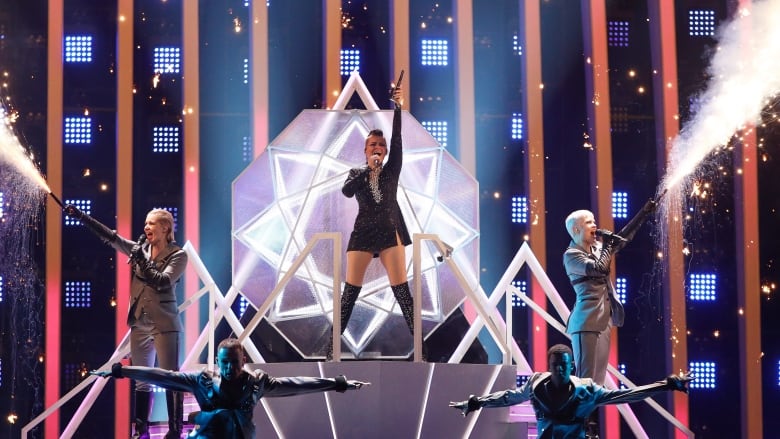It's not all glitter and gimmicks: Eurovision 2018 gets political
'I think it's a reflection of the status of politics on the continent right now'

For years, Eurovision has been known mainly for its glittery costumes, booming vocals and aggressively cheesy pop hooks.
With a few notable exceptions, the song entries themselves have typically been far less noteworthy. In the decades since the contest launched in 1956, themes of love and optimism have been far more prevalent than global politics.
But in 2018, even Eurovision is not immune to world events.
According to journalist Ben Rothenberg, who's been in Lisbon all week covering the contest, this could actually be Eurovision's most political year yet.
Everything from global terrorism to the #MeToo movement have found their way into the lyrics of this year's top contenders.
On Day 6, Ben described three of the most overtly political songs featured in this year's contest.
1. Toy - Netta (Israel)

Netta's Toy, inspired by the #MeToo movement, calls out sexual harrassers and empowers women at the same time.
Rothenberg says this is one of the more directly political songs he's noticed in the running for this year's top prize.
The song blends Korean, Japanese, and Israeli pop with electro elements designed to get the crowd dancing.
Rothenberg says audiences relate to it as it rides the feminist groundswell that has moved from North America to Europe.
He also says oddsmakers think Toy has a great chance of winning the Grand Final on May 12.
2. Non Mi Avete Fatto Niente - Ermal Meta and Fabrizio Moro (Italy)

Non mi avete fatto niente is more "concretely political than the Israeli song," says Rothenberg.
The song, which translates to "you've done nothing to me," lists the locations of several terrorist attacks in and around Europe.
Rothenberg says the track gets a bit messy in places, but he believes its message — which signals defiance and resilience in the face of terrorist attacks — is a direct product of the current political climate in Europe.
3. Mercy - Madame Monsieur (France)

Mercy tells the story of a real-life infant born to a Nigerian woman aboard the rescue ship Aquarius, just as it was about to dock at Catania's port in Italy. Her mother, Taiwo Yussif, fled Nigeria alone.
Inspired by the pop song, French journalists tracked down Mercy and Taiwo at a refugee camp in Sicily, where they played the track for her. Mother and daughter are still waiting for permanent shelter, but they are in a safe place.
The song and the performance are uncomplicated, and Rothenberg says the simplicity of the song's lyrics are what makes its message so effective.
To hear more from Ben Rothenberg, download our podcast or click the 'Listen' button at the top of this page.